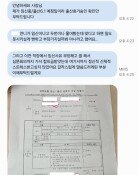N. Korea can no longer survive through nuclear threats
N. Korea can no longer survive through nuclear threats
Posted March. 06, 2018 07:43,
Updated March. 06, 2018 08:10
South Korea’s high-level delegation was welcomed by North Korean leader Kim Jong Un at a dinner hosted by Kim in Pyongyang Monday. Before departing for the North, South Korea’s National Security Chief and head of the delegation Chung Eui-yong said that he would “communicate clearly the will and intention of the president, who wants the denuclearization of the Korean Peninsula, and create a lasting peace by utilizing the flow of the inter-Korean dialogue.” Kim Jong Un’s response to President Moon’s message will be soon delivered to the South Korean government when the delegates return home Tuesday, and it will decide whether the two Koreas will walk along the path of dialogue or find themselves again in the crisis of a possible war breaking out.
Kim’s extension of hospitality to South Korean high-ranking officials was only to be expected. After reported by his younger sister Kim Yo-jong on her visit to South Korea on the occasion of the opening ceremony of the PyeongChang Winter Olympic Games, the North Korean leader reportedly expressed satisfaction, saying that South Korea’s sincere efforts to prioritize the delegation’s visit was very impressive. Pyongyang also immediately welcomed President Moon’s idea of sending a special delegation last week and accepted the delegation’s request for having a meeting with Kim without particular strings attached. Still, such hospitality in itself does not brighten the future prospect of inter-Korean ties and North Korea’s relations with other countries.
North Korea on Monday continued to condemn the United States in harsh words, reiterating its stance that it would not drop its nuclear programs. The Rodong Sinmun reported that the regime will take strong countermeasures if the United States infringes upon North Korea’s autonomy even by a little through means such as a sea blockade or cutting off sources of funds. However, Kim Jong Un himself would be more aware than anyone else of the fact that without improvement in the relationship with the United States, his country will remain as a “rogue state” and end up withering away.
In this vein, Kim will not knowingly abandon the “PyeongChang momentum.” He may express his intention to have a dialogue with the United States at a level of discussing “the mutual concern of North Korea and the United States,” without directly mentioning the willingness of denuclearization to the South Korean delegation. If so, Pyongyang could demand that Washington withdraw its so-called “hostile policies” towards the regime on condition of discussing denuclearization at a negotiating table. Given that there cannot be one party’s absolute victory in the arena of diplomacy, this may serve a meaningful starting point for the North Korea- U.S. dialogue.
However, dialogue in such settings will by no means last long. U.S. President Donald Trump has continuously stressed that he will “not repeat the same mistakes” of the past administrations since former President Bill Clinton in dealing with North Korea. Still, Kim Jong Un seems to be sticking to past practices under his father and grandfather’s rule of barely extending the regime’s life by threatening the international community into making concessions. However, now is the time for Kim to face the reality of his country. If it fails to find a middle ground until the end of the truce period of the Olympics and Paralympics, North Korea will find itself under an existential threat.
Headline News
- N. Korea launches cyberattacks on S. Korea's defense companies
- Major university hospital professors consider a day off each week
- Italy suffers from fiscal deficits from ‘Super Bonus’ scheme
- Inter Milan secures 20th Serie A title, surpassing AC Milan
- Ruling and opposition prioritize spending amid tax revenue shortfalls







